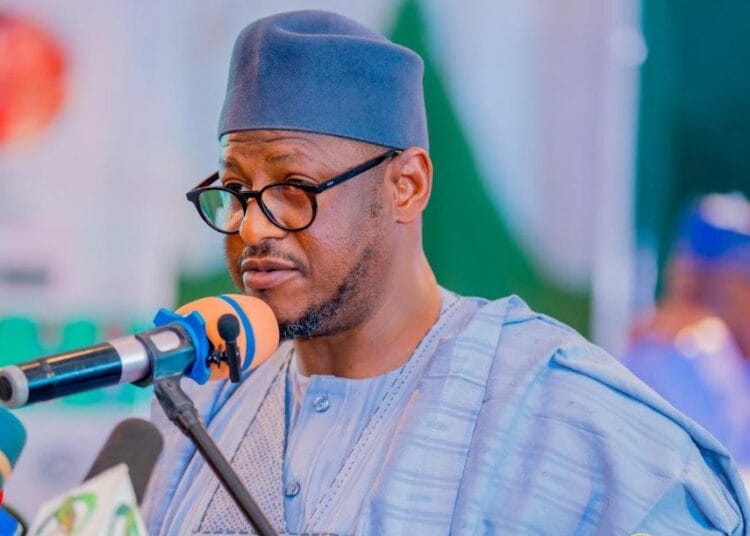By Damilola Adeleke
People—especially those closest to you—have a profound impact on your well-being. We’ll all experience the ups and downs of living with and loving imperfect people, but ultimately, our relationships should be a source of joy, not frustration.
Every human being on the planet is worth having rich, rewarding and safe relationships. And every human being on the planet has a responsibility to co-create those relationships. Let’s learn to spot the signs of a toxic relationship so you can start creating healthy ones instead.
What Is a Toxic Relationship?
A toxic relationship is one that has unhealthy dynamics and causes you distress or harm because you’re unsupported, manipulated or disrespected. While we all have our moments and seasons of selfishness, a truly toxic person will take and take and take and give you nothing in return. It’s like being bitten by a vampire (Team Edward!) and drained of your energy, joy and autonomy. You find yourself serving someone at the expense of your feelings, needs and joy.
Don’t get me wrong—service and sacrifice are part of a good relationship. And so are challenges, disagreements, forgiveness and discomfort. But a healthy relationship is mutually life-giving. The challenges and sacrifices ebb and flow toward connection and love.
And by the way, most people talk about toxic relationships in the context of romance, but the reality is that any relationship can become toxic, including relationships with coworkers, in-laws, parents, siblings and friends.
Abusive vs. Toxic Relationships
Before we move on, I need to share one important caveat: Do not mistake toxic with abusive. Abuse is an extreme form of toxicity, and it should not be tolerated by anyone for any reason for any amount of time.
https://www.calm.com/blog/toxic-relationships
Signs You’re in a Toxic Relationship
So, how do we distinguish between the normal challenges of any relationship and a truly toxic one? Here are a few common signs of toxic relationships to watch out for.
1. You don’t feel safe.
And I don’t mean physically (although that applies too). I’m talking about a sense of emotional safety. Can you openly share your thoughts and feelings with this person? Does your voice matter? Or do you feel like you’re always editing yourself, afraid of what they’d do or say if you were radically honest?
A healthy relationship gives space for people to be imperfect and accountable at the same time. You can tell each other the good stuff and the shameful stuff and openly talk about who has hurt you. You can be fully seen and still be fully loved.
Now let’s be clear: In most cases, you wouldn’t share your deepest hurts with your in-laws the way you might with a trusted friend. Safety has levels, depending on the relationship. It takes wisdom to discern the depth and differences of each relationship.
2. You have bad (or nonexistent) communication.
Good communication is the heartbeat of every relationship, and it’s easy to go off the rails without even meaning to. My wife and I have gone through seasons of toxicity because I was afraid to express my needs and desires. I would wish and assume, and when my expectations didn’t become reality, I would judge her, experience massive disappointment, and become resentful. It wasn’t until I opened up that we could actually connect.
And make no mistake, being honest doesn’t mean everything will magically be okay. Things are probably going to be uncomfortable or painful. That’s normal. But burying your hurts and needs deep inside you only leads to resentment.
Often, an emotionally charged conversation activates our fight, flight or freeze response. You become explosive, tackling the threat head on, or you withdraw into a cold silence.
Other examples of dysfunctional communication include gaslighting, manipulating words, being dishonest, and attaching judgment to their words without asking for clarification.
3. You feel neglected and exploited.
I live in the woods in Middle Tennessee. Since we have so much space outside, we planted a garden. Imagine this with me: What if I left my plants to fend for themselves, never watering or weeding or fertilizing? Things wouldn’t end well.
Not to sound like a hippie, but people need nurturing just like my garden. If your partner doesn’t honor and tend to your basic needs—not because you can’t do it, but because they care about you—then you’re not in a healthy relationship. Chances are, you’re not only being ignored—you’re also being exploited in a toxic relationship.
4. You feel like you’ve lost yourself.
Toxic people tend to absorb, manipulate and mold people to fit their own agendas. Their plans and interests dominate the relationship. You often find yourself doing things you don’t want to do just to please them—violating your core values, going places that make you uncomfortable, or spending time with people who set off your anxiety alarms.
Never forget: You hold the power. It’s up to you—not your partner—to recognize these patterns and set healthy boundaries. It’s your job to say no, assert yourself, and live in alignment with your values. But toxic people will often become resentful, frustrated or angry when you set boundaries or live your values.
Quick note: This is often hard to see on your own. Give your friends or trusted loved ones permission to speak into your life when they see you disappearing into someone else’s life. Those closest to us can often see things we can’t.
5. Judgment—not curiosity—is the norm.
We all have weird stuff about us that makes life both fun and challenging. The life blood of a relationship is curiosity, not judgment. If you like waking up early and your spouse likes sleeping in, that’s cool. Instead of saying, “You should get up earlier!” ask, “Why do you like sleeping in so late?”
And beyond being weird, we all mess up. We say or do things that hurt other people or step on toes or accidentally walk into their personal land mines. But these human missteps don’t equal toxic relationship signs. We need people who care enough to call it out. Being challenged and held accountable are important parts of any worthwhile relationship. But a toxic person will approach you with condemnation, not compassion. They’ll use your past mistakes as a weapon. Judgment is one of the telltale signs of a toxic relationship.
6. You feel belittled and ashamed.
Does this person make you feel less than? Do they belittle you or put you down? Make you feel stupid or ashamed? These are all signs of emotional immaturity—and clear indicators that it’s a toxic relationship. Emotionally immature people need to prop themselves up on a pile of your wrongs, failures and shortcomings. When they can’t find something bad to point out, they tend to invent something or rub your nose in something from the past.
7. You don’t receive empathy.
Empathy is like a pair of glasses you put on to see the world through someone else’s eyes. It’s choosing to “rejoice with those who rejoice, weep with those who weep” (Romans 12:15, ESV). It’s choosing not to lecture those who are going through a hard time about the reasons why they should be grateful. And it’s also choosing not to remind people who are doing well of all the suffering in the world.
A toxic person is hyperfocused on their own needs and wants, blinding them to the realities of people around them. When you open up and share your heart with a toxic person, you’re met with apathy instead of empathy, and redirection instead of celebration. They might dismiss you when you share important things with them, turn the conversation back on themselves, and one-up you when you tell stories.
8. You’re playing a dysfunctional role.
We often replay the family dynamics and relational stories of our childhoods in our adult relationships. For better or worse, these stories are our roadmaps for life. For example, a woman might marry a man who sits on the couch and plays video games all day so she can fulfill a mothering role. Or a child might take on caring for a parent who’s an addict‚ believing it’s their job to fix their parent.
Being stuck in a dysfunctional role is a sign of a toxic relationship because a relationship like that cannot be mutually life-giving and supportive. Is the person you’re with willing to grow and take accountability for themselves? Are you willing to grow? Because it’s only when we start to question our automated roles that we begin to heal and change our generational legacies.
9. You feel controlled or manipulated.
A toxic person feels a compulsion to tip the power balance in their favor. They might check in on you all the time or constantly bug you about where you’re going and what you’re doing. Your partner might weaponize the relationship to manipulate you into doing things. They might withdraw when you upset them and come running back when you do something “right.”
A good litmus test for this is to think of something that brings you joy. If you immediately think, Yeah, but [insert name here] will get mad, then you’re probably being controlled or manipulated.
10. You’re living under a cloud of rage.
Toxic people are often critical, mocking and chronically sarcastic.
Anticipate more……

Adeleke Damilola (ACTION) is a versatile content writer with expertise in news writing and a seasoned media professional and broadcast specialist. Currently serving as News Editor for DNews Info, Damilola is also the CEO of the ACTION brand, committed to shaping lives and establishing a legacy of excellence for present and future generations.
Discover more from DnewsInfo
Subscribe to get the latest posts sent to your email.




